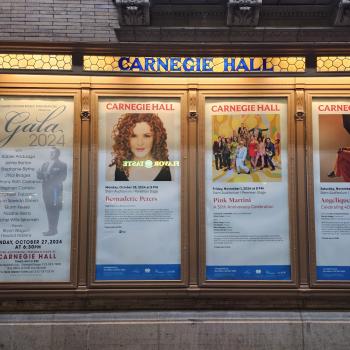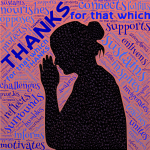Richard Macksey was a real professor at a brick and mortar University, a good one– John Hopkins. He of course had access to their library and other vast libraries in the Baltimore and D.C. area. But this didn’t stop him from having an excellent personal library of over 50,000 books, not to mention a portrait of Da Vinci (I think). See the photo above. While I am not a techniphobe, and have no issues with people reading books on Kindle, particularly for pleasure, I will just say that digital resources for learning languages and a myriad other things are fine, but these resources are frankly NOT the same as actually having books that you can handle, mark up, compare five pages at once in, and in short, do good scholarly work with. This is not about being old school as opposed to being new fangled. It’s about how to become a good scholar and do serious research.
Sometime ago I wrote a little primer entitled Is There a Doctor in the House? which is about the rigor, degrees, and journey to become a scholar– the cost, the benefits etc. I don’t really deal much with compiling a good library in that little primer. It’s good as far as it goes, but it doesn’t really deal with this subject. To be a good exegete, you need commentaries, monographs, dictionaries ready to hand. You don’t want to have to keep schlepping to a library five or ten miles away to get a resource. As for articles, you can indeed order them digitally. What’s wrong with library commentaries etc.? Nothing if you are just going to write a paper for a masters degree, and don’t plan on becoming a scholar. But if you are called to be a teacher and a scholar, YOU CAN’T MARK UP LIBRARY BOOKS! Shame on you if you do, and anyway, it is not likely the case that you will only use this or that commentary or monograph or dictionary once! Not if you become a career teacher and scholar. Again, I’m not talking about pastors who are not also scholars. Scholarly pastors do need a real library ready to hand, and even pastors who are just serious students of the Bible should have a decent library of real books too. Unless you have ten laptops, you can’t work with ten books at once even using split screen. You need actual physical books.
So how much is enough– you ask? I would say that depends on whether one of your callings is being an ongoing publishing scholar in your field. If so, you probably need a personal library of about 5,000 (not 50,000) books– a good assortment of commentaries, monographs, dictionaries, supplemented by the journals you subscribe to which can be in digital form (e.g. JBL, NTS, CBQ etc. if you are a Bible scholar). I have found that to be about the right number to have things ready to hand.
BUT, you say, books are so expensive these days!! However, ignorance is more expensive. Two things you can do to defray some of the cost is: 1) have a blog on which you review new books, and get the publishers to send you gratis copies to do so; and 2) buy books second hand. There are still antiquarian and second hand book sellers out there, including my old favorite in Boston, the oldest antiquarian bookshop in America— Brattle’s. I bought many many of my Loeb classical library volumes there second hand for less than half their list cost, sometimes as little as $5.00. And of course there are second hand books in our field on Amazon! So….. you who would be a serious scholar, you need to have an ongoing book budget, because there will always be new books you need to take account of, even if you are just updating syllabi and adding new resources for your regular courses. And of course, if after a few years you find some of your books are outdated or of little use, you can sell them, or even give them to your school library. I sold a lot of my books— several thousand to my alma mater Gordon-Conwell (Charlotte campus), at a significantly reduced price below what their worth was professionally evaluated at.
What particular sort of books you should buy depends on your research interests, the courses you teach, and what growth areas you want to enhance your knowledge in. But I would urge, DO NOT SIMPLY BUY BOOKS FROM SCHOLARS YOU ALREADY LIKE, TRUST, DEPEND ON. If you are going to be a serious student of the Bible, you need to know, and know well the spectrum of views on various subjects, and you need to have the critical acumen to sift them. And in regard to the latter, therein lies a problem.
Unfortunately, many conservative Christian schools these days do not teach critical thinking, and how to do it. They do not expose their students to a variety of views on various Biblical subjects. They simply offer the party line at that school, and do not try to tease their student’s mind into active thought. This is not good preparation for becoming a good teacher and scholar. This is neither a healthy nor a helpful approach for those who want to be able to teach their students what the real world of Biblical scholarship is like, and how to respond to it. There is much more that could be said on this topic…. but I hear my books calling me 🙂

















